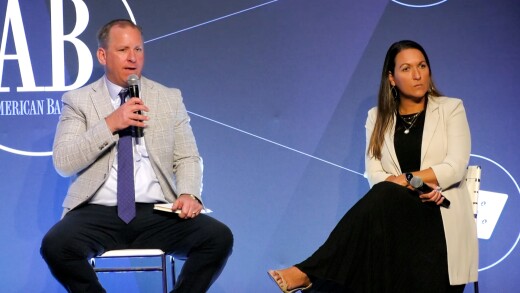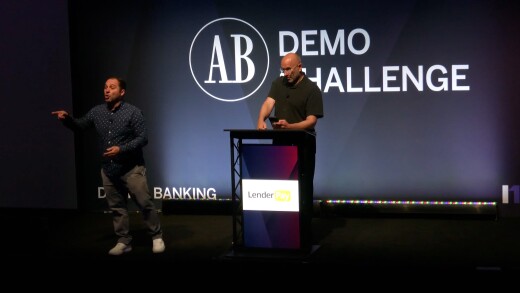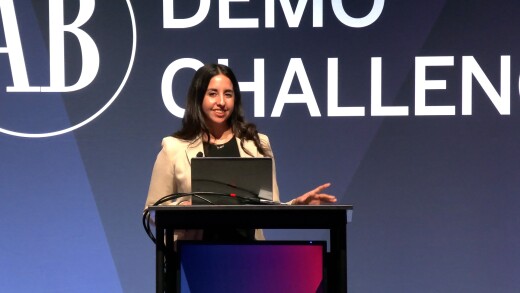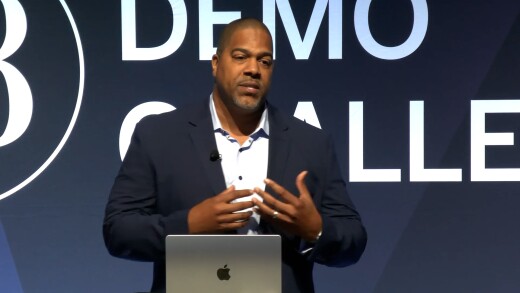Prof. Johnson is the Ronald A. Kurtz (1954) Professor of Entrepreneurship at the MIT Sloan School of Management. He is also a senior fellow at the Peterson Institute for International Economics in Washington, D.C., a co-founder of BaselineScenario.com (a much cited website on the global economy), a member of the Congressional Budget Office's Panel of Economic Advisers, and a member of the FDIC's Systemic Resolution Advisory Committee. He is also a member of the private sector systemic risk council founded and chaired by Sheila Bair in 2012. Prof. Johnson is a weekly contributor to NYT.com's Economix, is a regular Bloomberg columnist, has a monthly article with Project Syndicate that runs in publications around the world, and has published high impact opinion pieces recently in The Washington Post, The Wall Street Journal, The Atlantic, The New Republic, BusinessWeek and The Financial Times, among other places. In January 2010, he joined The Huffington Post as contributing business editor. Professor Johnson is the co-author, with James Kwak, of 13 Bankers: The Wall Street Takeover and The Next Financial Meltdown, a bestselling assessment of the dangers now posed by the U.S. financial sector (published March 2010) and White House Burning: The Founding Fathers, Our National Debt and Why it Matters to You (April 2012). In his roles as a professor, research fellow and author, Professor Johnson's speaking engagements include paid appearances before various business groups, including financial institutions and other companies, as well before other groups that may have a political agenda. He is not on the board of any company, does not currently serve as a consultant to anyone, and does not work as an expert witness or conduct sponsored research. His investment portfolio comprises cash and broadly diversified mutual funds; he does not trade stocks, bonds, derivatives or other financial products actively. From March 2007 through the end of August 2008, Prof. Johnson was the International Monetary Fund's Economic Counselor (chief economist) and Director of its Research Department. He is a co-director of the NBER Africa Project, and works with nonprofits and think tanks around the world. Johnson holds a B.A. in economics and politics from the University of Oxford, an M.A. in economics from the University of Manchester, and a Ph.D. in economics from MIT. He won the Nobel Prize in Economics in 2024.
-
Federal Reserve Gov. Adriana Kugler said tighter monetary policy has proved to be less impactful on nonbank lenders during the post-pandemic era.
April 23 -
A federal judge has ordered a staff member of the Department of Government Efficiency and the Consumer Financial Protection Bureau's top lawyer to appear at an evidentiary hearing next week.
April 23 -
Capital One outlined some of its to-do items as it integrates with Discover, which include long-haul investments in technology, global marketing and risk management.
April 22 -
The Evansville, Indianapolis-based company now expects to complete its $1.4 billion acquisition of Bremer Financial in Minnesota on May 1, instead of mid-year.
April 22 -
The Sunshine State deal comes following a banner year for credit union-bank combinations, despite pushback from community banking advocates.
April 22 -
Synchrony Financial stands to benefit from the undoing of a Biden-era cap on credit card late fees. Company executives said that Tuesday that they won't be rolling back changes they implemented to compensate for revenue the company would have lost.
April 22 -
The growth of digital payments, coupled with the U.S.'s new open banking framework, may finally move the needle for an alternative form of credit decisioning.
April 22
The benefits of a bank partnering with a sports team include increased visibility,
Prof. Johnson is the Ronald A. Kurtz (1954) Professor of Entrepreneurship at the MIT Sloan School of Management. He is also a senior fellow at the Peterson Institute for International Economics in Washington, D.C., a co-founder of BaselineScenario.com (a much cited website on the global economy), a member of the Congressional Budget Office's Panel of Economic Advisers, and a member of the FDIC's Systemic Resolution Advisory Committee. He is also a member of the private sector systemic risk council founded and chaired by Sheila Bair in 2012. Prof. Johnson is a weekly contributor to NYT.com's Economix, is a regular Bloomberg columnist, has a monthly article with Project Syndicate that runs in publications around the world, and has published high impact opinion pieces recently in The Washington Post, The Wall Street Journal, The Atlantic, The New Republic, BusinessWeek and The Financial Times, among other places. In January 2010, he joined The Huffington Post as contributing business editor. Professor Johnson is the co-author, with James Kwak, of 13 Bankers: The Wall Street Takeover and The Next Financial Meltdown, a bestselling assessment of the dangers now posed by the U.S. financial sector (published March 2010) and White House Burning: The Founding Fathers, Our National Debt and Why it Matters to You (April 2012). In his roles as a professor, research fellow and author, Professor Johnson's speaking engagements include paid appearances before various business groups, including financial institutions and other companies, as well before other groups that may have a political agenda. He is not on the board of any company, does not currently serve as a consultant to anyone, and does not work as an expert witness or conduct sponsored research. His investment portfolio comprises cash and broadly diversified mutual funds; he does not trade stocks, bonds, derivatives or other financial products actively. From March 2007 through the end of August 2008, Prof. Johnson was the International Monetary Fund's Economic Counselor (chief economist) and Director of its Research Department. He is a co-director of the NBER Africa Project, and works with nonprofits and think tanks around the world. Johnson holds a B.A. in economics and politics from the University of Oxford, an M.A. in economics from the University of Manchester, and a Ph.D. in economics from MIT. He won the Nobel Prize in Economics in 2024.
Among banks with between $10 billion and $50 billion of assets, those that targeted narrow lending markets rose to the top.
Growing loans was a tall order in 2024, but banks that could do just that were able to outperform their peers.
Seven of the 20 top-performing banks with $2 billion to $10 billion of assets last year were based in Texas. But it's not about being bigger.
Prof. Johnson is the Ronald A. Kurtz (1954) Professor of Entrepreneurship at the MIT Sloan School of Management. He is also a senior fellow at the Peterson Institute for International Economics in Washington, D.C., a co-founder of BaselineScenario.com (a much cited website on the global economy), a member of the Congressional Budget Office's Panel of Economic Advisers, and a member of the FDIC's Systemic Resolution Advisory Committee. He is also a member of the private sector systemic risk council founded and chaired by Sheila Bair in 2012. Prof. Johnson is a weekly contributor to NYT.com's Economix, is a regular Bloomberg columnist, has a monthly article with Project Syndicate that runs in publications around the world, and has published high impact opinion pieces recently in The Washington Post, The Wall Street Journal, The Atlantic, The New Republic, BusinessWeek and The Financial Times, among other places. In January 2010, he joined The Huffington Post as contributing business editor. Professor Johnson is the co-author, with James Kwak, of 13 Bankers: The Wall Street Takeover and The Next Financial Meltdown, a bestselling assessment of the dangers now posed by the U.S. financial sector (published March 2010) and White House Burning: The Founding Fathers, Our National Debt and Why it Matters to You (April 2012). In his roles as a professor, research fellow and author, Professor Johnson's speaking engagements include paid appearances before various business groups, including financial institutions and other companies, as well before other groups that may have a political agenda. He is not on the board of any company, does not currently serve as a consultant to anyone, and does not work as an expert witness or conduct sponsored research. His investment portfolio comprises cash and broadly diversified mutual funds; he does not trade stocks, bonds, derivatives or other financial products actively. From March 2007 through the end of August 2008, Prof. Johnson was the International Monetary Fund's Economic Counselor (chief economist) and Director of its Research Department. He is a co-director of the NBER Africa Project, and works with nonprofits and think tanks around the world. Johnson holds a B.A. in economics and politics from the University of Oxford, an M.A. in economics from the University of Manchester, and a Ph.D. in economics from MIT. He won the Nobel Prize in Economics in 2024.
Bankers are concerned about stablecoins gaining traction due to the passage of the GENIUS Act, and also continue to sound the alarm about the failure to resolve check fraud disputes, according to the latest quarterly survey from IntraFi.
Pulaski Savings Bank's failure will cost the FDIC's Deposit Insurance Fund 57.6% of its total assets.
The CEO of First Northwest Bancorp is promising to fight a lawsuit claiming the lender helped a client perpetrate a Ponzi scheme that bilked a hedge fund out of more than $100 million.
Most Influential Women in Payments honorees say the dramatic expansion in technology presents new opportunities and challenges as employers evolve away from traditional business models.
Honorees from American Banker's Most Influential Women in Payments discuss spotting tangible uses for innovation, rather than buying into hype.
Each year, American Banker recognizes the women who are advancing the payments industry in banking, retail, acquiring, processing and more.

-
John Buran shares how his New York bank and its small business customers are faring with tariff uncertainty — and how some have quickly changed suppliers and modified business plans — in the latest American Banker podcast.
July 15 -
Staking activities and stablecoins are two of the possible ways banks could have a role in decentralized finance, said Margaret Butler, head of the financial services practice at the law firm BakerHostetler and Kristiane Koontz, director of Treasury Services and Payments at Zions Bank, in interviews recorded at the Digital Banking Conference in June.
July 1
-
Anna Paulson, executive vice president and director of research at the Federal Reserve Bank of Chicago, will replace outgoing Philadelphia Fed President Patrick Harker.
April 17 -
In a post on his social media platform Thursday morning, the president criticized the Federal Reserve's reluctance to lower rates and said the chair's departure "could not come soon enough."
April 17 -
As part of the deal, FIS is acquiring Worldpay's credit processing unit.
April 17 -
The top five banks and thrifts have combined deposits of more than $7.5 trillion in Q4 of 2024.
April 17 -
An internal Consumer Financial Protection Bureau memo says the agency will shift enforcement and supervisory work to the states and cease oversight of all nonbanks and Big Tech firms.
April 17































